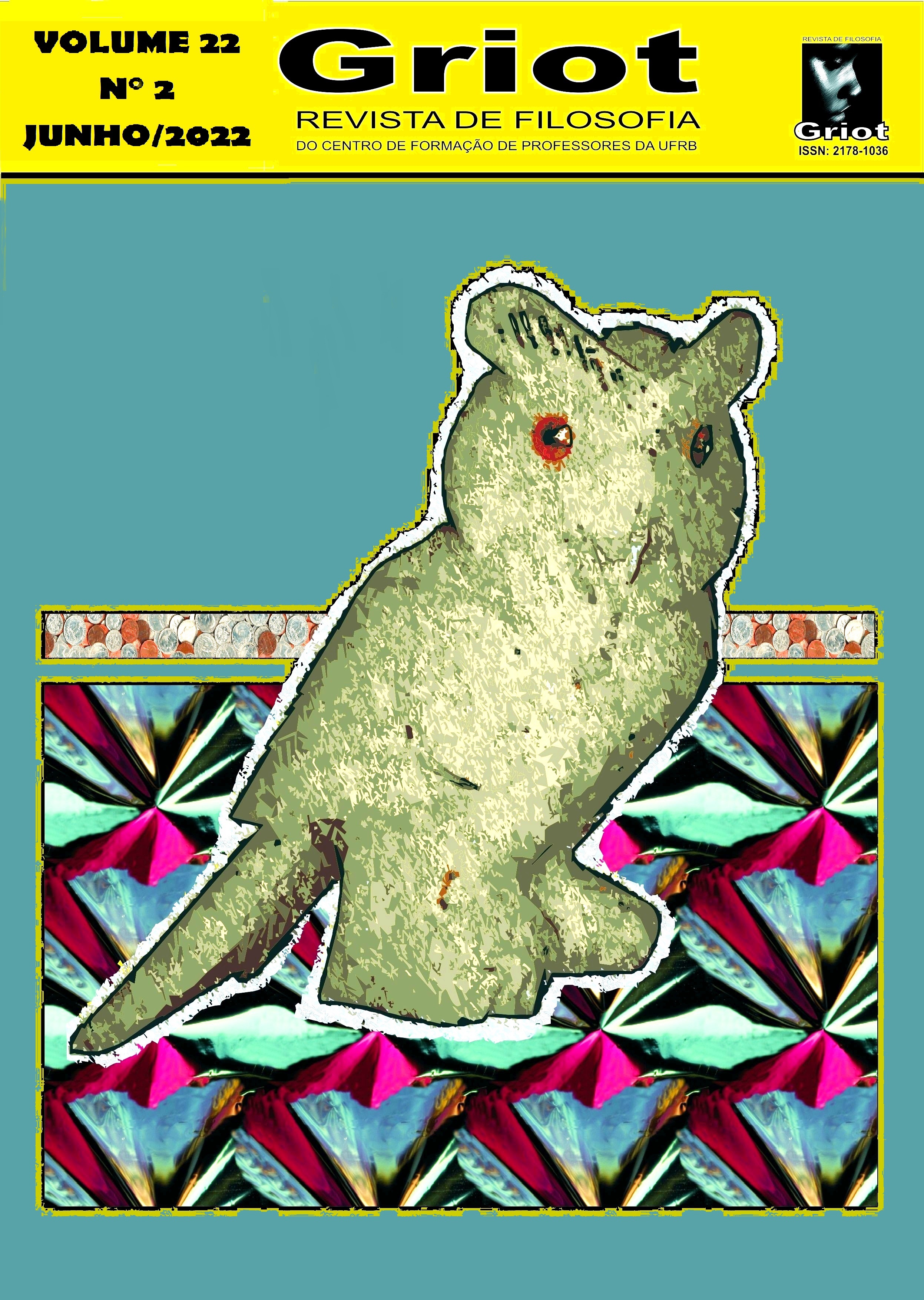Um ponto de partida sobre as medições: um entendimento esquemático e epistemologicamente útil
DOI:
https://doi.org/10.31977/grirfi.v22i2.2836Palavras-chave:
Medição; Filosofia da medição; Epistemologia da medição.Resumo
Teorizar sobre “o que é x?” é a tarefa primária de qualquer estudo que se pretenda uma “filosofia sobre x”. No caso da filosofia das medições, o problema é multifacetado, envolvendo noções cujas restrições são formuladas em vista de pressupostos metafísicos e consequências epistêmicas. Envolto à busca pelo entendimento sobre o que é medir estão problemas derivados da sua relação com o conhecimento, sobretudo científico. Essa relação posiciona questionamentos epistemológicos, mais amplos, que podem ser destrinchados em problemas epistêmicos mais específicos. Haveria, então, uma maneira de compreender e caracterizar as medições que possibilitasse identificar e esclarecer uma coleção desses problemas? Este artigo propõe um esquema frutífero nesse sentido, posicionando um ponto de partida útil frente ao campo.
Downloads
Referências
BRIDGMAN, Percy. The Logic of Modern Physics. New York: Macmillan, 1927.
CARNAP, R. Philosophical Foundations of Physics: An Introduction to the Philosophy of Science. New York: Basic Books, Inc.,1966.
CARTWRIGHT, Nancy; CHANG, Hasok. Measurement. In: CURD, M.; PSILLOS, S. (org.). The Routledge Companion to Philosophy of Science. 2nd ed. New York: Routledge, 2013, p. 411 – 419.
CARTWRIGHT, Nancy; RUNHARDT, Rosa. Measurement. In: CARTWRIGHT, N.; MONTUSCHI, E. (org.). Philosophy of Social Science: a new introduction. Oxford: Oxford University Press, 2014, p. 265-287.
CHANG, Hasok. Inventing temperature. Oxford: Oxford University Press, 2004.
CHANG, Hasok. Pragmatic realism. Revista de Humanidades de Valparaíso, n. 8, p. 107-122, 2016.
FINKELSTEIN, Ludwik. Widely, Strongly and Weakly Defined Measurement. Measurement, v. 34, p. 39–48, 2003.
FINKELSTEIN, Ludwik. Widely-defined Measurement – An analysis of challenges. Measurement, v. 42, p. 1270–1277, p. 2009.
HELMHOLTZ, Hermann von. Numbering and Measuring From an Epistemological Viewpoint. In: COHEN, R. ELKANA, Y. Hermann von Helmholtz epistemological writings: the Paul Hertz/Moritz Schlick Centenary Edition of 1921. Trans. Malcolm Lowe. Boston studies in the philosophy of science, v. 37. Dordrecht: D. Reidel Publishing Company, 1977, p. 72 – 102.
INSTITUTO NACIONAL DE METROLOGIA, QUALIDADE E TECNOLOGIA. JCGM: 200 – 2012. Vocabulário Internacional de Metrologia: Conceitos fundamentais e gerais e termos associados (VIM 3, 2012). 3 ed. Duque de Caxias: INMETRO, 2012. Disponível em: http://www.inmetro.gov.br/inovacao/publicacoes/vim_2012.pdf. Acesso em: 15 mar. 2020.
KUHN, Thomas. The Function of Measurement in Modern Physical Sciences. Isis, v. 52, n. 2, 1961.
MACH, Ernst. Principles of the Theory of Heat. T. J. McCormack (trans.). Dordrecht: D. Reidel, 1986.
MARI, Luca. A Quest for the Definition of Measurement. Measurement, v. 46, p. 2889-2895. 2013.
MARI, Luca. Epistemology of Measurement. Measurement, v. 34, p. 13 - 30, 2003.
PADOVANI, Flavia. Measurement, Coordination, and The Relativized a Priori. Studies in History and Philosophy of Modern Physics, v. 52, p. 123–128, 2015.
PORTER, Theodore. Objectivity as Standardization: The Rhetoric of Impersonality in Measurement, Statistics, and Cost-Benefit Analysis. In: MEGILL, A. (org.). Rethinking Objectivity. London: Duke University Press, 1994, p. 197-238.
QUINN, Terry. From Artefacts to Atoms – A new SI for 2018 to be Based on Fundamental Constants. Studies in History and Philosophy of Science, v. 65-66, p. 8-20, 2017.
STEVENS, Stanley. On the Theory of Scales of Measurement. Science, v. 103, p. 677–680, 194
SUPPES, Patrick; ZINNES, Joseph. Basic Measurement Theory. Psychology Series - Technical Report No. 45, 1962
TAL, Eran. How Accurate Is the Standard Second? Philosophy of Science, v. 78, n. 5, p. 1082-1096, 2011.
TAL, Eran. Making Time: A Study in the Epistemology of Measurement. The British Journal for the Philosophy of Science, v. 67, 2016, p. 297–335, 2016.
TAL, Eran. Measurement in Science. In: ZALTA, E. (ed.). The Stanford Encyclopedia of Philosophy, 2020. Disponível em: https://plato.stanford.edu/entries/measurement-science. Acesso em: 30 nov. 2020.
Van BRAKEL, J. Norms and facts in measurement. Measurement, v. 2, p. 45-51, 1984.
Van FRAASSEN, Bas. Laws and Symmetry. Oxford: Oxford University Press, 1989.
Van FRAASSEN, Bas. Scientific Representation: Paradoxes of Perspective. Oxford: Oxford University Press, 2008.
Downloads
Publicado
Como Citar
Edição
Seção
Licença
Copyright (c) 2022 Felix Pinheiro

Este trabalho está licenciado sob uma licença Creative Commons Attribution 4.0 International License.
Os autores que publicam na Griot : Revista de Filosofia mantém os direitos autorais e concedem à revista o direito de primeira publicação, com o trabalho simultaneamente licenciado sob a Creative Commons Attribution 4.0 International License, permitindo compartilhamento e adaptação, mesmo para fins comerciais, com o devido reconhecimento da autoria e publicação inicial nesta revista. Leia mais...









































































